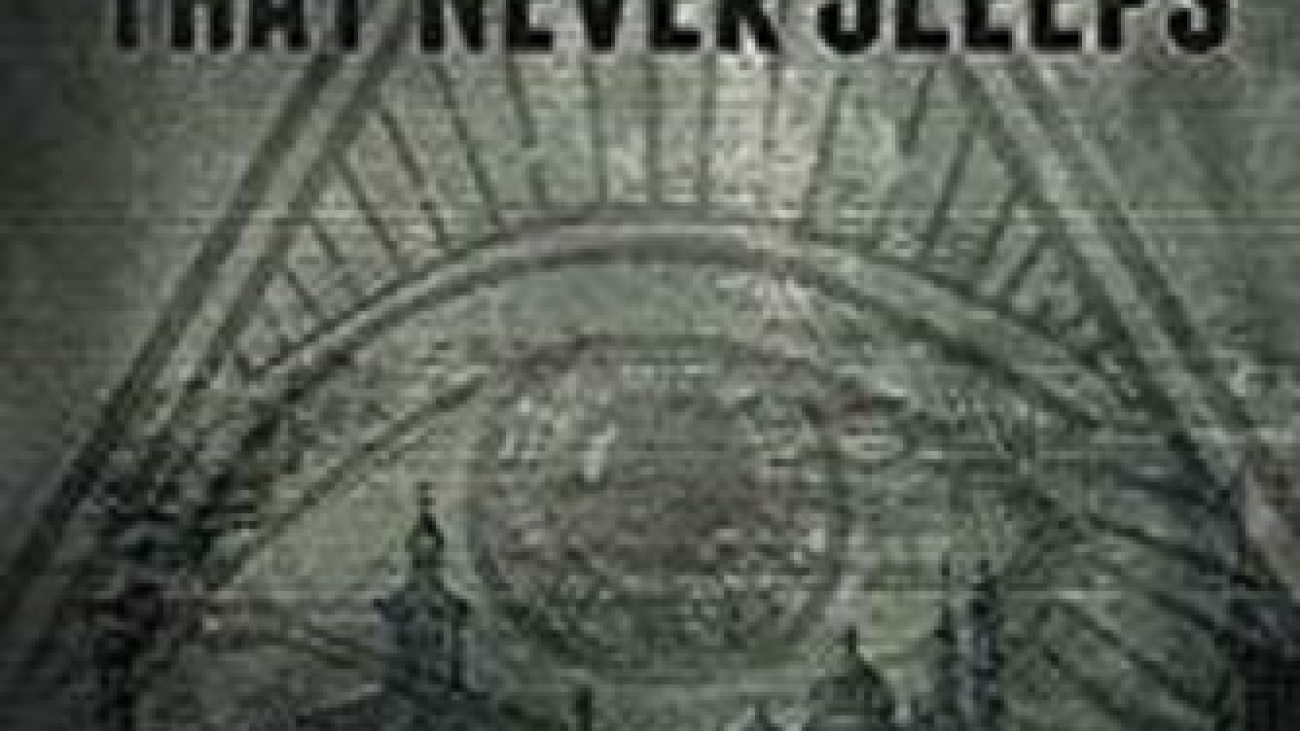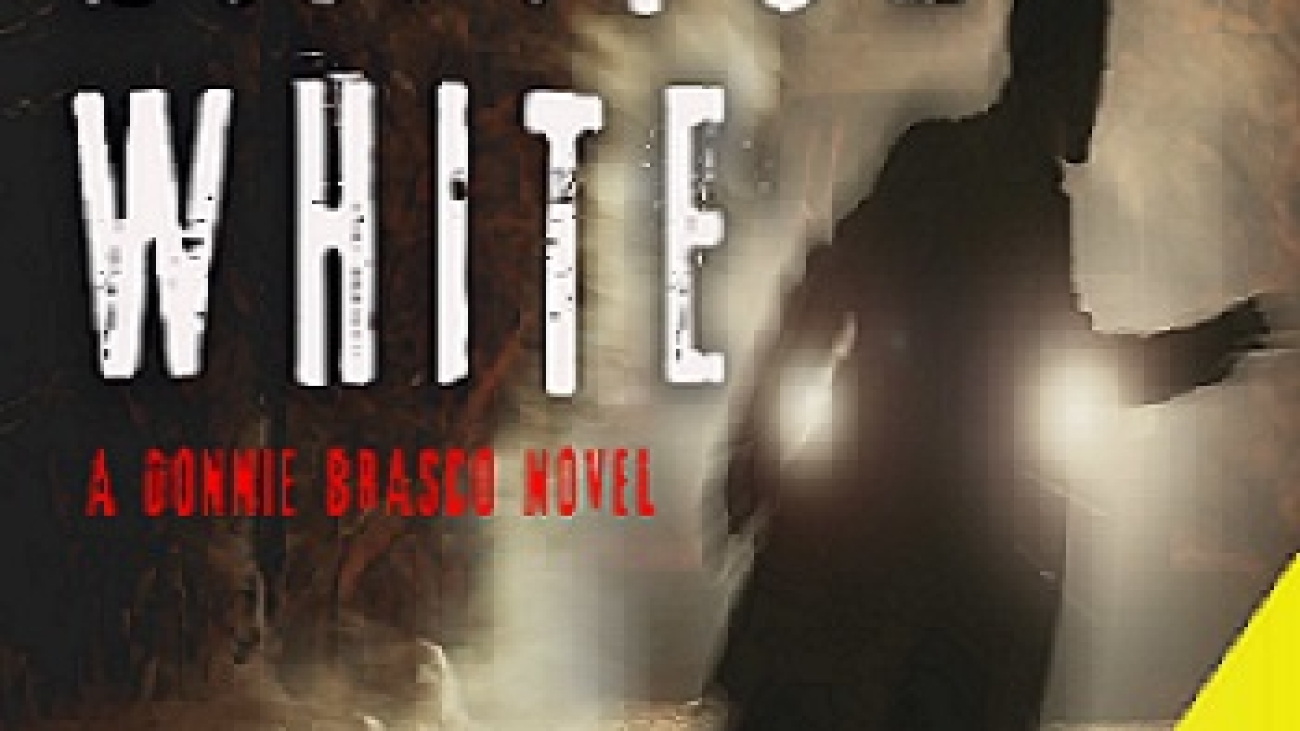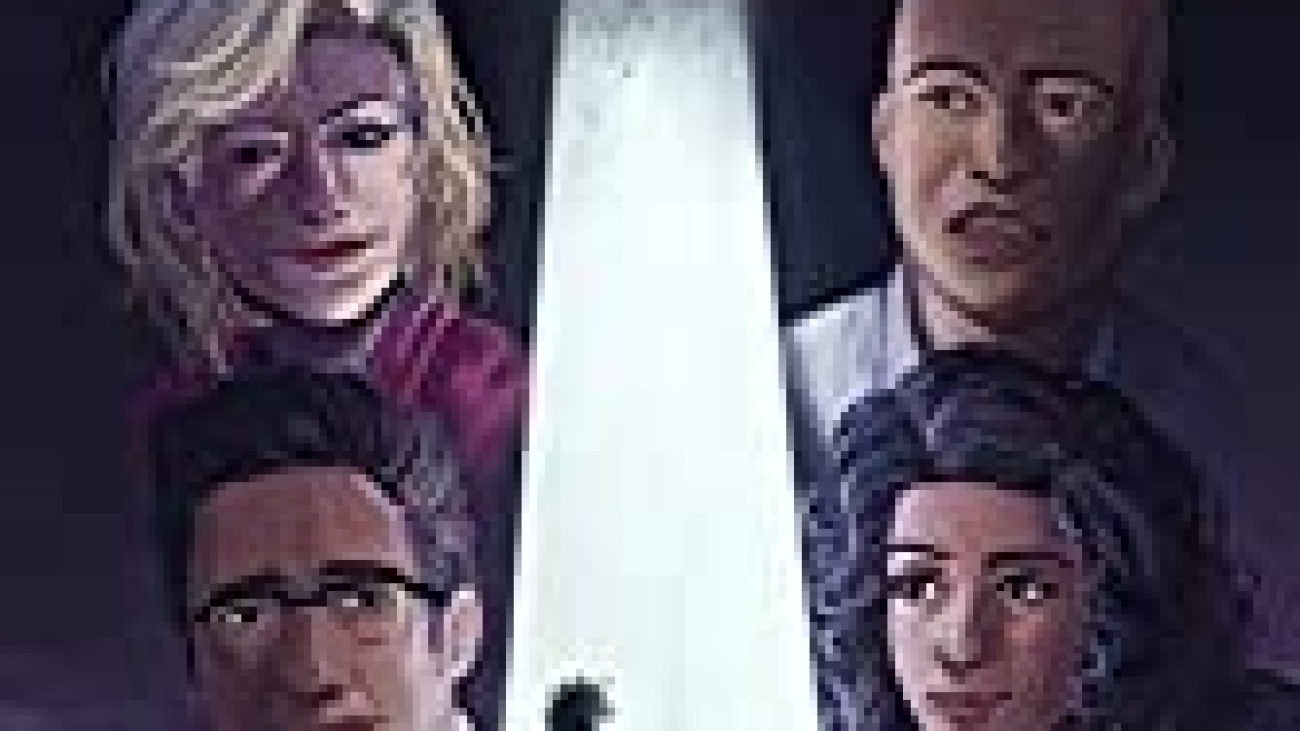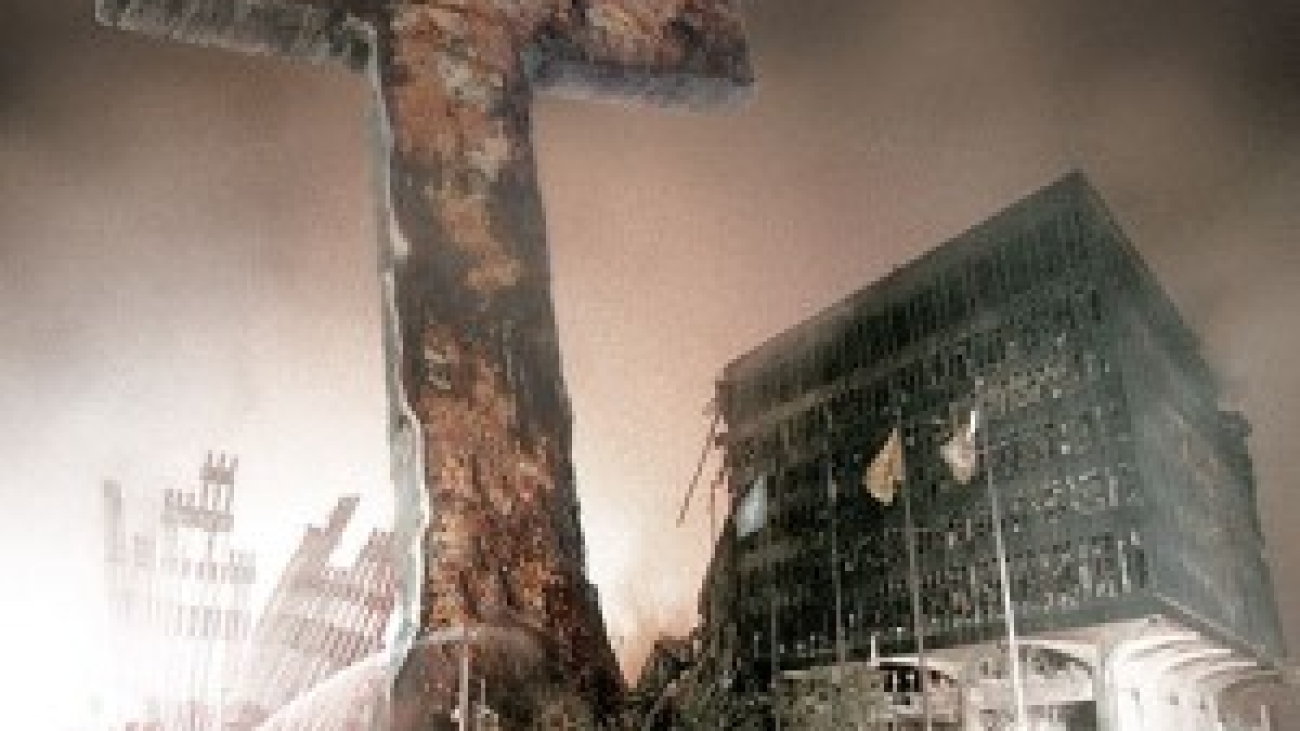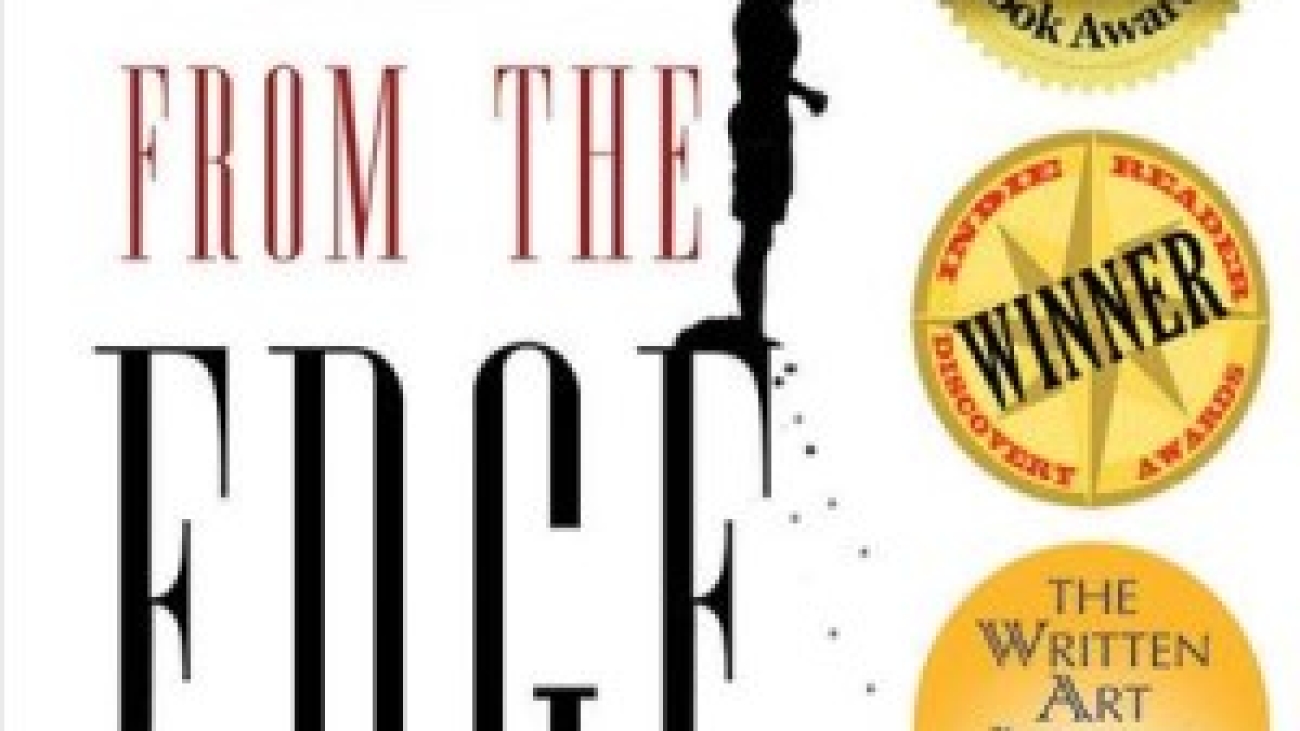Reviewed by Lisa Brown-Gilbert
Traversing back in time to New York City circa the late nineteenth century, Clifford Browder’s The Eye That Never Sleeps poses a decidedly brilliant take on the historical crime thriller with an enticingly twisted narrative that brings together history, mystery, and masterfully fleshed out characters. Purchase Here.
A growing mystery is afoot in the expanding metropolis of 1869 New York City when three banks are robbed within a nine-month period. Of particular concern is the robbery of the Bank of Trade which is considered the heist of the century. Moreover, the thief has the gall to brag about the robberies by way of sending to the president of each bank gloating rhyming verses and a key to the bank within days of the wake of each masterminded robbery.
Meanwhile, unfortunately for the bankers, the police department has been overwhelmed by the heavy caseloads of other criminal investigations which leaves the city’s bankers in growing desperation. Looking for answers, they turn to private operative/ detective Sheldon Minick who agrees to take on the case for a substantial retainer which enables the financially strapped detective to pay bills and bring meat to his table.
An intriguing character from the start, Minick comes across as reserved and intelligent, but odd, as he not only enjoys baffling the criminals he chases, but his clients as well. Also, a master of disguise, he manages to successfully infiltrate the infamous Thieves Ball previously found impenetrable by police to mete out potential suspects. It is there at the ball, that Sheldon Minick encounters Slick Nick Prime aka Nicholas Hale, master cracksman and a bragging dandy whose wealth and wile allows him to answer to his proclivities at his whim.
Consequently, the thrills ensue as these two complex characters are brought together in a thrilling game of entanglement and wits with the intimate perspectives of both men’s psyche and lifestyles exposed. As a result, the vastly different character’s lives are lensed through the eye-opening details of the history, politics, and personalities of the era with particular attention to the division of quality of life, ultimately providing a compelling look at the wealthy and privileged life of the criminal Hale versus the poor but good guy Minick.
Altogether, I really enjoyed The Eye That Never Sleeps. I relished in being immersed in a story that captured the reality of that era in early New York history, especially being a New Yorker myself. I do highly recommend this book. It was a worthy read that was simultaneously informative, compelling and entertaining.
Capitol White by Joe Pistone and Jon Land
Book reviewed by Russell Ilg
As a crime film connoisseur, I place Donnie Brasco among the very best the genre has to offer. Watching Johnny Depp, as the title character, spend five years undercover inside the New York Mob, before ultimately bringing down the infamous families at the top of the food chain, remains great fun every time I watch it. Purchase Here.
So it was with great interest that I plunged into Capitol White, more or less a direct sequel to that movie, penned by former FBI agent Joe Pistone working in tandem with bestselling thriller writer Jon Land. The twist is Donnie himself has been re-imagined wondrously here as a fictional hero, as opposed to a fictitious one, to spectacular success.
Pistone famously chronicled his years living undercover in Donnie Brasco: My Undercover Life in the Mafia – A True Story. Capitol White may be all fiction but you wouldn’t know it from the writing and I had to remind myself numerous times that what I was reading was made up instead of a literary rendition of Donnie’s next major case.
And what a case it is, as we follow the now retired Brasco being lured back into action when a pair of current agents come to him with the story that his mentor’s recent death was the product of murder and not natural causes. Before you can say “Martin Scorsese,” Pistone’s famed undercover doppelganger is all-in on what got FBI Assistant Director Paul Weinman killed, following a trail that leads to a shadowy cabal of Washington powermongers who, by all indications, have usurped the opioid trade for their own nefarious ends.
Hence the title Capitol White, a play on “China White” which is one of the many street names for heroine. It’s oddly appropriate, given that Donnie will stop at nothing to ferret out the politicos and crooks running the show, as coolly professional in fiction as he was in fact, even if that means going back undercover, something he’d promised his family he’d sworn off forever.
For my money, those scenes with his wife and three young sons are the very best in the book, especially when his youngest boy becomes responsible for uncovering a crucial clue (as well as the book’s chilling denouement). William Faulkner once said that the greatest conflict is the human heart at war with itself, and Donnie struggles mightily to keep a vow made to his family while honoring an obligation to the man who was his lifeline during those dangerous years he spent undercover.
This is gritty crime-thriller writing of the highest order, hardboiled prose packed with a punch made all the more enjoyable by a superb unabridged reading by Alexander Centese. Centese’s measured voice and cadence make the tale’s noir-ish elements even more foreboding as Donnie plunges deeper and deeper into a darkness that threatens to swallow him whole at every turn. The first-person narration crackles with authenticity, helping to (re)establish Donnie’s street creds and smarts as he negotiates a Washington, DC terrain that seems little different than the New York streets on which he made his bones, politicians no different from mob bosses. A rollicking, riveting and relentless read/listen.
The Friends of Allan Renner by David J. Andrae
Book Reviewed by Lisa Brown-Gilbert
Dave J. Andrae’s The Friends of Allan Renner proposes an intelligent exploration of life through a multi-level, multiperspectival narrative which comes by virtue of Allan Renner’s encounters and discourse with his eclectic assortment of friends. Purchase Here.
This book is definitively an offering of food for thought, brimming with revelations about life and people in general. This is a narrative that is provocative in its ideals and shines through its characters, their thoughts, actions and personalities during their congregations with central character Allan Renner often giving a story within a story as their backstories are also very revealing about human nature. Moreover, although this work is a fictional story, the subject matter of their encounters and conversations are realistic, important, and quite often thought provoking with topics such as astrophysics, cosmology, modern culture, racism, film making, futurism, sex, dating, technology, as well as artistic endeavors.
Ultimately, as the story’s protagonist, Allan Renner is an interesting characterization. He is intelligent, amiable, stalwart, a film buff and occasionally, works freelance as a production assistant. Meanwhile, within the seven chapters of the book, each chapter is centered around an encounter with a different friend. Perspectively, life is seen through the diversity of fascinating viewpoints with each acquaintance. Also at play is the diversity of their backstories which allows for a deeper look into their thought processes with the conversations delving into various aspects of the human condition.
First, we meet Akhil Das, a well-degreed high school guidance counselor, astrophysics enthusiast, and unfortunate alcoholic. Akhil and Allan delve into conversation on the topics concerning cosmology and the beginning and end of humanity. Next, we meet Allan’s friend Sadie Guildwood, an attractive middle-aged woman who was once head-vocalist in a semi popular band, as well as social media blogger. Essentially the interaction between Sadie and Allan presents a bit of sexual tension as there is a potential for a romantic encounter between the two that does not materialize but hope for it looms in the air. Their conversations include juxtaposing working in cinema versus working as a musician, the future of humanity, future technology, and Transhumanism. Additionally, there are spates of inner mentations concerning their likes and dislikes about one another. The pace picks up, when the two meet with an acquaintance of Sadie’s that take things on an interesting twist. Moving on to the next friend, we meet Fred, a multiracial African American jazz enthusiast who grew up somewhat privileged. Also a budding film director and teacher, Fred believes in the power of cinema to help people. What makes this chapter stand out is the reactions of characters while waiting for a seasoned criminal to come and audition for a film. The remainder of the book encompasses chapters based on his parents, his pet Havapoo Ruby, as well as pivotal friends Carmen and Xynnulu.
Altogether the people and experiences in the chapters of Allan Renner’s life made for an interesting, nicely paced story, woven with absorbing, complicated characters enmeshed in a creative narrative with scenes of a life that are revelatory, endearing, and pulse racing. I enjoyed The Friends of Allan Renner by Dave J. Andrae; it made for great read, with a storyline that included a nice science fiction twist and I do recommend it for adult readers.
Miguel Traveler: The Man from Texas by Daniel McFatter
Book reviewed by Chris Phillips
Miguel wakes up floating in a solution and being cuddled and cared for by “Mama.” There is a lot going on around him and suddenly he is washed out of a large tank of fluid in to the arms of Alice, the Woman in Black. This is the surprise beginning. Purchase here.
The story is told from Miguel’s perspective, throughout. It is unusual for a 1st person book to hold the interest of most readers, but this is one of the few that is very well written. There are 3 sections, each proceeded by a poem that nonetheless becomes important to the story. Almost from the beginning there is action, excitement and so many seemingly mundane encounters, but prove to be truly not.
“Man is unto himself the Great Work-a puzzle to be opened, explored and ultimately solved.” This quote is almost integral to a good in-depth analysis of the book. This is one book requiring some thought after reading it because of the depth presented.
Miguel changes perspective from the dystopian future where “Man Diminished” to the time of his former life in the early 2000s, Part 2, “Once Upon a Time on Farm Road 216.” Much has changed in the long time (undefined but suggested as 250 years in the future from Miguel’s life when he disappeared in 2012). And Miguel must discover it, cope with it and find his own place. It is not until the last moment when the plot climaxes into Miguel’s purpose in life is found and made complete.
Although Miguel is the main character and the narrator throughout there are many people enter into the telling. Most of those fit well into the current events of today, especially those from the former life, however, there are so many new types of creatures, people and other entities in the future it sometimes leads to confusion which gradually leads more to an understanding of what Miguel thinks of himself and other humans. The first life is a collection of memories he slowly remembers at first, but becomes vividly clear and integral to the plot and the self discovery of Miguel in the future world.
With simulants, enhanced humans, diseased humans, and entities which appear human but have abilities well beyond human normal abilities, the book covers a lot of ground and also reveals, very gradually, that the humans are the core to the situation, problems and solutions.
The characters are developed well enough for each one’s purpose in the story. The plot is inexorable and yet very reasonable looking back through the book. It is well developed and carried through with a certain finesse. The writing is usually consistent and apparently Miguel’s memory is very detailed with how the first life and those situations are relayed. There are some difficult passages based on dialect and some in Spanish, notwithstanding these are also discernible with a little thought.
This book can be recommended to any readers. There is some adult language, adult situations not involving sex and a lot of extreme violence. Those would be the cautions for younger readers. Those who like post-apocalyptic tales will enjoy this. Those who like psychologically and sociologically based drama will definitely enjoy this.
The Perfect Match by T. Wayne Bloodworth
Book reviewed by Lisa Brown-Gilbert
A narrative, both sincere and touching, The Perfect Match by author T. Wayne Bloodworth focuses on the complex and emotion ridden journey of Dr. Zack Folsom, a man living life so mired in doubt, sorrow and guilt, that it takes twisted fate for him to let go and start living life as he should. Purchase Here.
Central character, Doctor Zack Folsom, a talented cardiac surgeon, loving husband and father, becomes a man preoccupied, after suddenly losing his wife Emily in a fatal car accident. To avoid the pain of his loss, he throws himself into his work dedicating the majority of his time and energy to his medical practice gaining him the reputation of being “all business” while he constantly wields an irascible and crudely sarcastic disposition.
Although he experiences great success as a competent surgeon, he also deeply feels the emptiness of the void left by his wife’s death. Meanwhile, his only son Brody who is very much in need of a loving relationship with his father especially after the loss of his mother is now raised and cared for by Emily’s family. Consequently, the relationship between father and son eventually festers into a dysfunctional and emotionally fractured relationship as Brody feels ignored and essentially parent-less, and in turn grows to hold onto a deep and resounding resentment against his father.
However, a turning point occurs when things change as a twist of fate brings a lucrative offer to purchase Zack’s start up, a surgical robotics company. The offer not only bears opportunities that would allow Zack freedom from a now disenchanting career, but also brings a beautiful and intelligent lawyer, Gabriella Bennett into his life. As a mutual attraction develops, she helps to bring closure to some of the complexities and emptiness in his life.
Overall a satisfying read, The Perfect Match lives up to its name on multiple levels especially with the theme of the perfect match, being well executed by author T. Wayne Bloodworth. He artfully employs a nicely honed knack for evenly paced, detailed storytelling mainly when it comes to his ability to portray vivid images, the medical field and scenes of touching emotion. Additionally, I found the characters to be well thought out. I particularly enjoyed the character of Doctor Folsom. He was a sympathetic character whose emotions were tangibly realistic. I recommend putting this book on your “to be read” list. It definitely would make a good end of summer, feel good read.
A Tempered Faith: Rediscovering Hope in the Ashes of Loss by Jennifer Sands
Book reviewed by Nancy Eaton
There are so many stories regarding the events of September 11, 2001. Some are told by the family members who lost loved ones on this day and others are told by the survivors. The stories are very sad; but, at the same time, they are all unique and very intriguing. It’s difficult to imagine what the relatives and friends of people who were killed on September 11 went through at the time and for the years that followed this terrible assault on America. Purchase Here.
Jennifer Sands tells us her personal story. She met her soul mate, Jim, through a dating service. The two were surprised that they went to the same school, lived in the same town, etc. but never met each other. They got married. Jennifer worked as a pharmacist and Jim worked for Cantor Fitzgerald at the World Trade Center. They enjoyed a few short, wonderful years together. They both had a love for Scuba diving in the Cayman Islands.
On the night of September 10, 2001, Jim and Jennifer watched their favorite team, the New York Giants, play on Monday Night Football. Their dinner turned out to be a disaster (pasta made with a jar of sauce.) Since Jennifer was Italian this was really a no-no. Jim decided to make some popcorn. The popcorn burned but Jim ate it anyway. As a result, Jim’s stomach did not feel well during the night. As I was reading this section of the book, I wondered – if only Jim had called in sick the next morning…Jennifer also had the same thought.
Jennifer, a Catholic, always prayed for Jim’s safety. He had a long commute to work between the drive and the ferry. She thought that praying is all she needed to do because she had a contract with God. However, after losing Jim in the terrorist attack on the World Trade Center she grew more and more angry with God. She wondered how God could let something like this happen.
Jennifer’s nephew, Kevin, gave her a special Christmas gift, a journal called Grace for the Moment Journal, Max Lucado’s daily devotional prayer journal. On each page there was scripture and a writing prompt. Jennifer wrote daily in the journal during 2002. This journal played a major role in helping Jennifer to heal.
Jennifer writes this story with honesty and raw emotion. You can feel her anger toward God. As time passed, you can see how she started to accept what had happened and the changes that took place in her feelings toward God. As readers go through the journal, they will clearly see how God was there for Jennifer and how he helped to answer many of her questions.
A Tempered Faith is an emotional, gripping and spiritual story of a young widow who questions God and heals in the process. I would recommend this book to everyone but especially to someone who has lost a loved one.
I had the opportunity to meet Jennifer Sands. She was a speaker at an event I attended at America’s Keswick in Whiting, NJ. After listening to her speech, I had to purchase a copy of her book, Tempered Faith, to read more details about the loss of her husband.
Thank you, Jennifer, for sharing your story with us.
On a personal note, one of the items on my “list of things to do” is to visit the 9/11 Memorial. I know this will be a very emotional and difficult trip to make but I just feel it is the least I can do to pay respect to the people who lost their lives that day. After all, these were innocent people who happened to go to work that day to earn a living. My cousin’s wife was working at the World Trade Center on September 11, 2001 but she was one of the lucky ones who made it safely out of the building.
Note Update: I did visit the 9/11 Memorial and as expected, it was a very somber day. Just to look at all of the photos of the people who lost their lives that day is heartbreaking. I did see the photo of Jennifer Sands’ husband. The one thing that did give me some joy that day was to see the Survivor Tree. If you are not familiar with the Survivor Tree, you can Google it and read the amazing story about this tree and what it means to the 9/11 Memorial.
View from the Edge by Michael Kasenow
Book reviewed by Teri Takle
“When you get up in the morning–duck.”
How many of us have often wondered at the end of the day if we would have been better off to just stay in bed?
After being treated for a mental breakdown, Dr. Joshua Feenics is returning to his regular life after his leave of absence. Purchase Here.
Joshua Feenics often feels that way now. He is a college professor who happens to be the head of his department. Basically he is bombarded with the complaints from students and faculty with the expectation of his mediation with each particular situation. Some days this proves to be extremely challenging especially when both seem to just lack common sense.
Josh is well aware of the professors in his department, especially their weaknesses and their prejudices. Another student concern is that there seems to be a possible religious cult on campus involving some of his students.
This small university is also being strongly considered as the site for the future display center for some newly discovered archeological wonders, possibly part of the Ten Commandments written by God. The authenticity seems to collaborate with the time period. However to Josh, something just doesn’t feel right.
With his personal life, Josh is fairly certain that his wife is having an affair. Her moods yo-yo and her excessive drinking makes their relationship definitely questionable. Now she wants them to sell their dream house on a lake so that they can start over since Josh had a mental breakdown. So why does she want to build a gazebo and a new dock? It seems the only solid relationship he has is his only son, Blake.
View from the Edge has a slow beginning as this introductory section centers around Josh and his daily life as well revealing the baggage of his abusive childhood. The few uplifting areas in his life usually revolve around his son and his friendships at the university. However, the development of the characters is amazingly strong and revealing to each of their personal character in this part.
Quickly though, View from the Edge becomes a page-turner. Although not technically a mystery since this is really Josh’s narrative, there are many crimes and mysteries which develop and are discovered throughout this finely interwoven tale. With each aspect unfolding, Josh discovers his strengths and involvement in each mystery.
Michael Kasenow is a geology professor at Eastern Michigan University. He is the author of many science books, won numerous awards for his poetry, and the well-received novel The Last Paradise.
The lessons learned in reading View from the Edge advises each of us to keep going each day, no matter what our problems or challenges are along the way. Why? “We do what we can to feel good about it. But it takes you, you don’t take it.” Think about that when your life seems overwhelming and read View from the Edge.
The Dawn of Saudi by Homa Pourasgari
Book reviewed by Chris Phillips
Homa Pourasgari has written a romance novel. The girl is in trouble, hiding from pursuers and truly running for her life. The guy is rich, haughty without realizing it, and handsome. This makes for a good romance novel. Purchase Here.
However, Pourasgari takes this common story line and twists it. She keeps surprises popping up throughout the story. Sometimes there are as many as two or three turns in each chapter. Sahar is the main character in the first six chapters. She is a Saudi princess, daughter of a wealthy businessman. She is raised as the pampered princess she is portrayed to be. When the story starts it is her wedding night, and she has apparently committed suicide. The next five chapters recount what led up to that suicide. Several characters are introduced in this section, namely Dawn Parnell and Jason Crawford. In chapter seven, their romance story begins.
Dawn is doing everything she can to be plain and not stand out. She is obviously hiding from the past and doesn’t really want anyone to know. She is not looking for love and just trying to get by. When she goes to work at Jason’s parents’ estate as a housekeeper, the twists begin to come. Dawn was young and foolish once. She married a Saudi businessman believing that she would have a special marriage in a protected compound and still travel all over the world. She didn’t, and now she is hiding from him and the Saudi government.
Jason Crawford is a handsome wealthy businessman. He lives at his parents’ home, but in his own suite, and maintains a healthy social life. He is noted a playboy and not above having an affair with the domestic help of the estate. He is wealthy, handsome, and very unavailable.
How they learn to love each other and deal with Dawn’s problems makes up the plot of the story. This plot wavers throughout the book. The pace of the book is set with the first chapter, but chapters one through six, Pourasgari, explains the terms and customs of Saudi life as well as trying to move the story along. This technique is very distracting to the point of annoying. Without those details there would only be two chapters instead of six. Instead of defining and explaining as much Pourasgari should have included a glossary in the back.
The story development is very good with solid characters and a good pace. The reader can be glued to their seat compelled to finish a chapter because of such talent. But Pourasgari has an agenda with this book, expressed throughout the book, but concisely explained in the Author’s Notes at the end. There Pourasgari explains the tragic life of Saudi women and children within that kingdom. She advocates political and social pressure on the Arab world to stop violating basic human rights. Pourasgari has some very strong views about religion and government being as intertwined as it is in Saudi Arabia.
These views would be better expressed in another medium since they distract from the book. She advocates intervention to prevent more abuse of women and children within the Middle Eastern Arab World and everywhere those countries have political power. She lambasts the mediocre and often nonexistent protests and policies of the United States and British governments.
Finally, there is a “Reader’s Guide” following the “Author’s Notes” section giving the book a pedagogical feel. The questions are relevant and searching for comprehension; however, will probably be ignored by most Western readers.
This book exposes the terrible conditions many people within Saudi Arabia live under. Anyone that is politically active and concerned about human rights should read the book. It is a worthwhile read for anyone. This reviewer highly recommends it for any private reading list.
